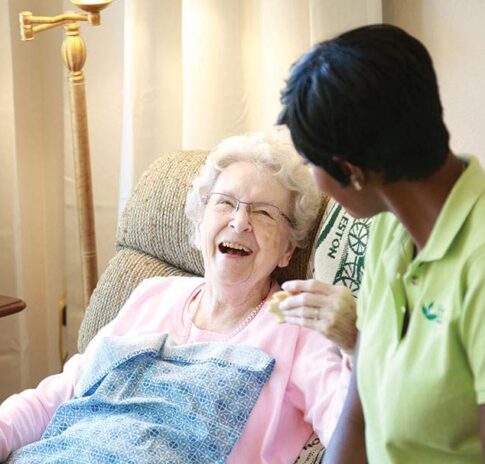 Too often we ignore the warning signs of a heart attack, thinking it might be indigestion or the strain of a muscle. That’s why heart attacks are nicknamed “the silent killer”, because rarely do they just happen suddenly. Usually there are a number of warning signs that should never be ignored.
Too often we ignore the warning signs of a heart attack, thinking it might be indigestion or the strain of a muscle. That’s why heart attacks are nicknamed “the silent killer”, because rarely do they just happen suddenly. Usually there are a number of warning signs that should never be ignored.
More than a million Americans have a heart attack every year, and chronic heart disease is the leading killer of both men and women in the United States. A heart attack, or a myocardial infarction (MI) causes permanent damage to the heart muscle. Oxygen rich blood stops flowing to the heart muscle, the heart muscle becomes blocked, and the muscle begins to die. The good news is that excellent heart attack treatments are available, particularly when started right after the symptoms occur. Even if you’re not sure if you or someone you love is having a heart attack, call 9-1-1 right away. It could mean the difference between life, death, or living with a permanent disability.
Most heart attacks occur as a result of coronary heart disease (CHD), also called coronary artery disease. CHD occurs when a waxy substance called plaque builds up inside the coronary arteries, blocking the ability of oxygen-rich blood getting to your heart.
The Warning Signs of Having A Heart Attack
The symptoms signs of a heart attack include:
- Chest discomfort. You may feel discomfort in the center of your chest, arm or below the breastbone that may come and go.
- Shortness of breath with or without pain
- Breaking out in a cold sweat
- Extreme fatigue
- Nausea and vomiting
- Light-headedness
The symptoms of a heart attack will be different for each person. Some people don’t even realize they are having a heart attack. If you’ve already had one heart attack, your symptoms could even be different the second time around.
More men than women have heart attacks, but this gap is rapidly closing. Unfortunately for women who have a heart attack, they are more likely to pass away, be permanently disabled or have a second heart attack within a year. Why? Because the signs of a heart attack in females can be slightly different for women than men. Many women suffer from extreme fatigue, frequent indigestion, and lack of strength versus chest pains.
Preventative Test Could Save Your Life
When was the last time you had a complete physical? Or even a stress test or EKG to make sure your heart’s arteries are not blocked? I can hear you say it: “it’s too expensive”. Or, “I don’t have insurance.” The average cost of a heart attack is $760,000 in hospital costs alone, so in comparison, these tests are relatively inexpensive!
However, high blood pressure, high cholesterol, or high blood glucose can all be risk factors that can make you a heart attack waiting to happen. Some of these tests are inexpensive or many communities have them available with free health screenings. Here are some tests recommended by Prevention that could literally save your life.
- Stress tests which measure your pulse and heart rate as you walk on a treadmill hooked up to an EKG. Unfortunately, this test is not very accurate, often misdiagnosing women with false positives.
- Cardiac calcium scoring via a CT scan that checks for atherosclerotic plaque in your heart’s arteries.
- Carotid Intimal Medial Thickness Test which takes an ultrasound of your neck to measure the thickness of the left and right arteries supplying blood to your brain and heart.
- High-Sensitivity C-Reactive Protein Test which measures the protein in your blood indicating inflammation throughout your body.
- Advanced Lipid Profile Test is a cholesterol blood test that goes beyond the traditional cholesterol test looking at the size of the cholesterol particles that can triple your chances of a heart attack.
- A1C Blood Glucose Test measures your average level of blood sugar over the prior 3 months to detect your future risk of diabetes.
Don’t wait too long before getting help. More people could survive heart attacks or diminish their recovery time if they got help faster.
If you need help recovering from a heart attack, a FirstLight Home Care caregiver can be at your home every day, to help you with medication reminders, bathing, dressing and anything else you need to help speed up your recovery time.
